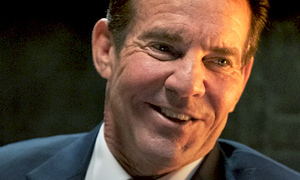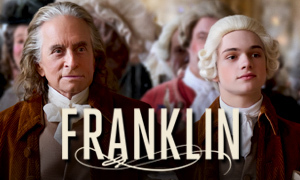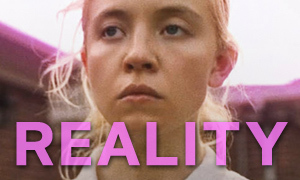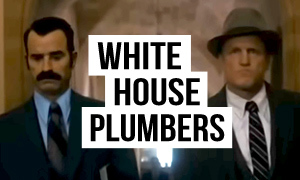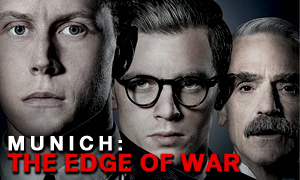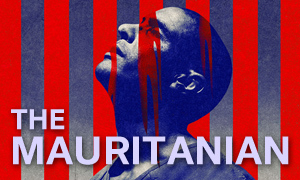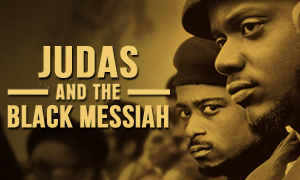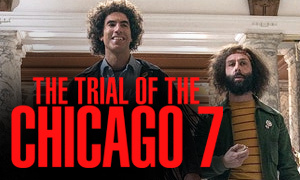Vice: History vs. Hollywood
| REEL FACE: | REAL FACE: |
Christian Bale
Born: January 30, 1974 Birthplace: Haverfordwest, Pembrokeshire, Wales, UK | Dick Cheney
Born: January 30, 1941 Birthplace: Lincoln, Nebraska, USA |
Sam Rockwell
Born: November 5, 1968 Birthplace: Daly City, California, USA | George W. Bush
Born: July 6, 1946 Birthplace: New Haven, Connecticut, USA |
Amy Adams
Born: August 20, 1974 Birthplace: Vicenza, Veneto, Italy | Lynne Cheney
Born: August 14, 1941 Birthplace: Casper, Wyoming, USA |
Steve Carell
Born: August 16, 1962 Birthplace: Concord, Massachusetts, USA | Donald Rumsfeld
Born: July 9, 1932 Birthplace: Chicago, Illinois, USA |
Tyler Perry
Born: September 14, 1969 Birthplace: New Orleans, Louisiana, USA | Colin Powell
Born: April 5, 1937 Birthplace: New York City, New York, USA |
Alison Pill
Born: November 27, 1985 Birthplace: Toronto, Ontario, Canada | Mary Cheney
Born: March 14, 1969 Birthplace: Madison, Wisconsin, USA |
Lily Rabe
Born: June 29, 1982 Birthplace: New York City, New York, USA | Liz Cheney
Born: July 28, 1966 Birthplace: Madison, Wisconsin, USA |
LisaGay Hamilton
Born: March 25, 1964 Birthplace: Los Angeles, California, USA | Condoleezza Rice
Born: November 14, 1954 Birthplace: Birmingham, Alabama, USA |
Did Dick Cheney fail out of Yale twice?
Yes. After high school, Dick Cheney was accepted to Yale University on a scholarship with the influence of an alumnus who was a Wyoming oilman. In his book In My Time: A Personal and Political Memoir, Dick Cheney writes that while at Yale, he befriended "some kindred souls, young men like me who were not adjusting very well [to Yale] and shared my opinion that beer was one of the essentials of life." His drinking resulted in him flunking out. In the movie, his partying also leads him to punch someone and he is called a "dirtbag." In researching the Vice true story, we learned that this scene is fiction with no factual evidence to support that it happened. After taking a year off, he tried to return to Yale but flunked out again.
Cheney found work for a while helping to string power lines as a groundman. Unlike what's seen in the movie, he did not work up on the poles as a lineman. Instead, he helped dig the holes for the poles and worked to hoist the lines up to the linemen, the individuals who actually strung the lines. He eventually went back to school, enrolling at the University of Wyoming where he earned a BA and an MA in political science.
Did Dick Cheney really get two DUIs?
Yes. Court and police records reveal that Dick Cheney was busted for drunk driving twice in an eight-month span in the early 1960s when he was working as a groundman helping to run power lines. He would go out drinking with his fellow employees after work. The arrests happened in his home state of Wyoming when he was 21 and 22. His punishment included fines and a brief suspension of his license (The Smoking Gun). Cheney mentioned the DUIs in a 2001 interview with The New Yorker, stating that the arrests made him "think about where I was and where I was headed. I was headed down a bad road, if I continued on that course."
Did Dick Cheney get a stern talking to from Lynne regarding his drinking?
Yes. A fact-check of the Vice movie reveals that he did get a stern talking to from then-girlfriend, now-wife Lynne about straightening himself out. A fictionalized version of that gut-check conversation is included in Vice. Cheney said that avoiding bars and getting married helped him to get his act together. -Business Insider
Did Dick Cheney's father-in-law murder his mother-in-law by drowning her in a lake?
That's what Vice implies and it's the number one question History vs. Hollywood got about the film prior to releasing our research. The movie presents no evidence to support its assertion that Lynne Cheney's father murdered her mother. At her mother's funeral in the film, Dick Cheney (Christian Bale) tells his father-in-law, Wayne Edwin Vincent (Shea Whigham), to never attempt to contact them again. The movie moves on from its implication of murder, as if it needs no more exploring. Did the Cheneys actually believe this was possible? Is there any evidence to support such a controversial claim?
The answer is no. In real life, Lynne Cheney's mother Edna did drown. It happened on the evening of May 24, 1973 when she was 54. As reported in the Casper Star Tribune, Edna had apparently been walking her dogs around Yesness Pond when she slipped and fell in near the picnic shelter. She did not know how to swim. Her body was discovered after her husband reported her missing. The sheriff and the coroner stated that there was nothing to indicate foul play and the drowning was ruled accidental. No further inquest was carried out.
In the epilogue of her 2009 memoir, Blue Skies, No Fences: A Memoir of Childhood and Family, Lynne did raise doubts about her mother's death, wondering if her mother had been a victim of foul play, but she reasoned that the most likely scenario was that her mother's death was accidental. Edna had been taking blood pressure medication that made her dizzy. Lynne theorized that if she had a couple drinks with dinner, it's possible that she lost her balance when chasing after her dogs.
Lynne certainly never implied that her father could have killed her mother. The movie is fabricating this out of a statement Lynne had made in her memoir. "My father was devastated. Over the years, my mother had become less tolerant of his temper, more likely to walk out herself when he began to shout, and I suspect that they quarreled before she left, adding a dimension of remorse to his sorrow," Lynne wrote. Unlike the film, she does not mention her father acting strange at the funeral. In fact, she stated that her father was so devastated over the loss that he ended up drinking himself to death two years later. The conspiracy theory implied in the movie is pure fiction created by director/screenwriter Adam McKay.
Did Dick Cheney arrive in Washington uncertain of his party affiliation and what he was supposed to believe?
No. The Vice movie has Cheney arriving in Washington knowing nothing except that he wants to work for a White House official. He picks his party after enjoying a presentation by a foul-mouthed then-Representative Donald Rumsfeld (Steve Carell). Cheney becomes his assistant. The movie later finds him going so far as to ask Rumsfeld, "What do we believe in?"
The true story behind Vice reveals that Cheney's political beliefs had already been shaped by that point. It is well known that he had been staunchly conservative throughout his life, so it's ridiculous to think that he would have arrived in Washington with no political affiliation. Cheney has said that his views on policy largely took shape in college. For example, he has stated that various professors during his time at Yale, including Professor H. Bradford Westerfield, greatly influenced how he approached foreign policy.
Did a young Antonin Scalia really tell Cheney that Article II of the Constitution gives the chief executive absolute authority?
No. In the film, Dick Cheney is given advice by a young then-future Supreme Court justice named Antonin Scalia, who shares with Cheney how he sees Article II, "It's an interpretation a few, like myself happen to believe, of Article II of the Constitution . . ." Scalia goes on to explain that he believes that Article II of the Constitution gives the president the power of "absolute executive authority. And I mean absolute."
First, someone like Scalia, who was known for being a strict constitutionalist, would never have uttered the words "happen to believe" in relation to the Constitution. He did not see the Constitution as a matter of "belief." Scalia treated the founding document, which defines the framework of the Federal Government, as the law of the land and made his decisions as a Supreme Court justice in accordance with it.
Second, Scalia wouldn't have said that Article II gives the president absolute power. Why? Because Article II doesn't say that the president can do absolutely anything. Director Adam McKay has admitted to creating many of the movie's conversations and this is certainly one of them.
Did Cheney's wife Lynne win him his seat in Congress?
No. In the Vice movie, Dick Cheney (Christian Bale) is ineffective at giving speeches when he's campaigning for Congress in 1978 and the stress gives him a heart attack. He ends up on two weeks bed rest, with his lead in jeopardy. His wife Lynne (Amy Adams) steps in and wins over crowds with her charisma and appealing message.
Lynne Cheney winning her husband his seat as the sole Wyoming representative is entirely conjecture. The movie also edits Cheney's voting record in Congress in an attempt to make him appear like an outright bad person. For example, he did vote for MLK Day in 1983, after first voting against it in 1978, but the movie changes his 1980s' vote to a "NAY". Others like John McCain voted against the holiday in 1983, stating in part that another federal holiday would cost taxpayers too much money since federal employees are still being paid. McCain later admitted he was wrong on the issue.
Did Dick Cheney really convince the House not to override President Reagan's veto of the Fairness Doctrine?
The movie depicts George Bush Sr. thanking Cheney in 1987 for convincing the House not to override President Reagan's veto of the Fairness Doctrine, a law from 1949 that forced broadcast radio and TV outlets to present both sides of an issue equally. In reality, there's no record of Cheney convincing the House to abstain from interfering with the veto. This is almost certainly untrue, especially given that Cheney wasn't the GOP Whip until 1989. The movie follows its insinuation by then essentially blaming Cheney for the rise of opinion news, citing Fox News as an example. In addition to this connection to Cheney being outright false, the filmmakers are also apparently unaware of the fact that the Fairness Doctrine applied only to broadcast licensees. Given that Fox News is a cable television channel, it would have most likely never been restricted by the doctrine.
Why does Vice barely mention Dick Cheney's involvement in the first Gulf War?
Director Adam McKay begins Vice by having the narrator (Jesse Plemons) tell us that when Dick Cheney became vice president, nobody knew anything about him. McKay is attempting to position Cheney as an unknown evil that took everyone by surprise. However, a quick Vice fact-check reveals that to be untrue. McKay is avoiding the fact that Cheney was already a fairly well-known celebrity, having been Secretary of Defense during the first Gulf War under George H.W. Bush. The senior Bush won that war, which Cheney oversaw. Both political parties praised Cheney's professionalism and he was the subject of numerous press interviews at the time. He was hardly an unknown.
Did Dick Cheney accept the VP slot with plans to expand the power of the president?
Vice makes it seem like Cheney was scheming from the beginning to expand the reach of the president. While investigating the Vice true story, we found no proof of this. It wasn't until after 9/11 that Cheney and the Bush administration embraced a broader definition of executive power. This included using enhanced interrogation techniques (waterboarding, etc.), ramping up domestic surveillance (the Patriot Act), and denying suspected terrorists trials. Despite the controversy, Cheney himself believed such measures were necessary to keep the country safe.
In an interview with Chris Wallace in 2008, Cheney attempted to defend the administration's position. "First of all, you've got to remember that what we did after 9/11 was make a judgment that the terrorist attacks we were faced with were not a law enforcement problem, they were, in fact, a war," he said. "It was a war against the United States — and therefore, that we were justified in using all the means available to us to fight that war. And in a war, you capture the enemy and you hold them until the war is over with. You don't capture German prisoners of war and then put them on trial in World War II." -Chris Wallace Interview
Did Bush and Cheney wear the American flag on their lapels prior to 9/11/2001?
No. The custom to wear the American flag on the lapel reached its peak during the Nixon years and then was largely abandoned. The tradition saw its biggest resurgence following the terrorist attacks of September 11, 2001. Yet, we see Bush (Sam Rockwell) and Cheney (Christian Bale) wearing the American flag on their lapels during the 2000 campaign in the movie, a year too early.
Did Dick Cheney really authorize shooting down hijacked planes on 9/11 without the President's approval?
No, at least not according to both President Bush and Cheney, who have both stated that they discussed engagement rules during a phone conversation on the morning of 9/11. During the call, Cheney suggested that fighter pilots be authorized to shoot if planes will not divert. Bush signed off on that concept, thus authorizing the shooting down of hijacked aircraft. Some people who were with the Vice President say that they indeed remember the call. However, the 9/11 commission was unable to find documented evidence for the call, stating in their report, "Among the sources that reflect other important events of that morning, there is no documentary evidence for this call, but the relevant sources are incomplete."
Despite the report being inconclusive with regard to the call, and Bush and Cheney themselves stating it happened, Vice takes the position that not only didn't the call take place, it has Cheney going as far as to deny Condoleezza Rice's suggestion that they get the President back on the phone for approval. Cheney instead gives the shoot-down order himself. This contradicts Rice's own recollection of events, in which she described overhearing Cheney on the phone talking to the President about the shoot-down order. "Sir, the CAPs are up. Sir, they're going to want to know what to do." Then Rice recalled hearing Cheney respond, "Yes sir." The movie's scenario is most likely fiction.
Did Vice President Dick Cheney support invading Iraq because of his ties to the Halliburton Company?
Before accepting George Bush's offer to be vice president, Dick Cheney had been CEO of the Halliburton Company, an oil field service company that stood to make a fortune (and did) off no-bid contracts in Iraq. Cheney stepped down from the position when he started campaigning as George W. Bush's running mate in the lead up to the 2000 election. Vice claims that he received a $26 million severance package. It might have actually been higher, but most of it came from him selling his 140,000 shares of Halliburton stock that had been given to him as part of his executive compensation package, not as part of a severance or retirement package. -ABC News
Suggesting as the movie does that Cheney supported invading Iraq solely because of his ties to Halliburton is a politicized viewpoint. In reality, no one knows to what degree this might have influenced Cheney. However, this isn't to say that the movie's claim is without merit. When he was secretary of defense under George W. Bush's father during the first Gulf War in the 1990s, prior to working for Halliburton, Cheney opposed invading Iraq and overthrowing Saddam Hussein, citing the instability it would create in the region, the lack of an exit strategy, and the cost in terms of American casualties. He then changed his position after 9/11 (and after working for Halliburton), stating that he believed that Saddam Hussein had weapons of mass destruction, was connected to al-Qaeda, and that invading Iraq was necessary to combat the War on Terror.
The movie does mostly fail to mention that there were many others in government who supported the use of force in Iraq, including 29 Democratic senators and all but one Republican. In addition, others on the left like Hillary Clinton supported the Iraq War. This is emphasized in the film via a TV clip of her stating, "Saddam Hussein will increase his capacity to wage biological and chemical warfare."
While Iraq under Saddam Hussein did heavily research and use weapons of mass destruction in the past, there is little evidence to suggest that Iraq's chemical, biological, or nuclear weapons programs were still active after the end of the Persian Gulf War in 1991, when the United Nations sought out and destroyed Iraq's chemical weapons stockpiles, materials, and related equipment. And in 2004, the 9/11 commission discovered no "collaborative relationship" between Iraq and al-Qaeda, the terrorist group behind the 9/11 attacks. To some degree, it was Saddam Hussein's frequent lack of cooperation with UN and IAEA inspections that fueled the suspicion that he was harboring weapons of mass destruction.
Is Dick Cheney to blame for the launch of ISIS?
This is what the movie implies, stating that Cheney made sure the name of al-Qaeda terrorist Abu Musab al-Zarqawi was mentioned prominently in a speech given by Secretary of State Colin Powell. Al-Zarqawi had set up shop in Iraq and the administration wanted to emphasize a link between al-Qaeda and Iraq to help convince the public that an invasion of Iraq was necessary. Supposedly, this also helped bring al-Zarqawi into the limelight and made him a "star," resulting in the launch of his terrorist group ISIS.
The movie then claims that for a year Cheney ignored the monster he created, which gave al-Zarqawi time to mastermind the 2005 London transit bombings. Director Adam McKay goes as far as to imply that even though al-Zarqawi was killed by U.S. soldiers in 2006, all of the subsequent deaths inflicted by ISIS during the Obama years are Cheney's fault as well, all because at one point he had wanted the name of terrorist al-Zarqawi to be mentioned in a speech.
Implying that Dick Cheney is somehow responsible for the launch of ISIS and its terrorist acts hits a level of absurdity that even Cheney's staunchest critics won't likely fall for. And McKay's claim that Cheney didn't initially pay enough attention to al-Zarqawi may be a reasonable criticism in hindsight, but has he forgot all the things, both controversial and not, that the Bush administration was doing about terrorism at the time?
Are Dick Cheney and the Bush Administration responsible for the practice of waterboarding suspected terrorists and locking them up at Guantanamo Bay?
Yes. Vice President Dick Cheney and the Bush Administration established Guantanamo Bay detention camp in 2002 as part of the War on Terror. Critics of the camp have long argued that it violates human rights, citing incidences of reported torture used to extract information from suspected terrorists. This includes waterboarding, which has long been a topic of disagreement among politicians (and the public) and is still brought up during presidential debates.
Director Adam McKay uses his movie Vice to rail against these "enhanced interrogation" techniques. While it's clear what side the movie is taking, audiences will either agree or disagree depending on their viewpoints. As far as Guantanamo Bay, Barack Obama had campaigned on the promise that he would close the detention camp, but he never did. He did reduce the number of inmates but still retained many of the Bush Administration's policies with regard to the War on Terror. -The Washington Post
Did Dick Cheney really tell Lewis Libby to leak Valerie Plame Wilson's name to the press?
No. As we carried out our Vice movie fact-check, we discovered that even though Lewis Libby was convicted of lying to investigators, Richard Armitage has since come forward and admitted to talking to the press about Valerie Plame Wilson's CIA employment. He never got in trouble because he claimed that he was unaware of her status as a non-official cover agent.
Did Dick Cheney really stand up for his gay daughter, only to later let her down?
The movie trivializes a much more complicated family dynamic. Cheney openly supported his daughter Mary after learning that she was a lesbian. This included support for same-sex marriage. However, when his other daughter, Liz, opposed same-sex marriage in her congressional run, the Cheneys publicly supported Liz's bid for Congress (she is currently a member of the House of Representatives), even defending her when she was criticized.
The movie paints this as throwing their daughter Mary under the bus and reversing their views on same-sex marriage, but that was not the case. In reality, it was more a matter of respecting each daughter's different viewpoints, while still supporting their aspirations. "This is an issue we have dealt with privately for many years, and we are pained to see it become public," the Cheneys said in a statement. "Since it has, one thing should be clear. Liz has always believed in the traditional definition of marriage."
Over the years, Dick Cheney has himself confirmed his support for same-sex marriage, first making his stance public in the 2000 vice presidential debate. He drew criticism from conservatives in 2009 over his comments at the National Press Club in Washington. "I think people ought to be free to enter into any kind of union they wish, any kind of arrangement they wish," he said with regard to gay marriage. "Freedom means freedom for everyone." Both Mary Cheney and her sister Liz are politically conservative. -The Washington Post
Did the man who Cheney accidentally shot while hunting apologize to Cheney?
Yes. The film includes authentic footage of Harry Whittington, the man who Cheney accidentally shot while quail hunting, apologizing to his shooter. Whittington felt sorry for what "[Cheney] and his family had to go through." Whittington, a 78-year-old Texas attorney, had sustained birdshot wounds to his chest, neck and right cheek during the accidental shooting that happened on February 11, 2006. Three days later, he suffered a non-fatal heart attack and atrial fibrillation as the result of at least one lead-shot pellet lodged near or in his heart. The incident hurt Cheney's reputation, as it became the punchline of numerous jokes and the subject of satire. Cheney was criticized for waiting several days to make the shooting public, but he said that it was because he had been waiting until Whittington's condition improved.
The movie paints Cheney as not caring about shooting his friend and never offering an apology for his actions. However, a little research into the Vice true story quickly reveals this to be false. "Ultimately, I'm the guy who pulled the trigger, that fired the round that hit Harry," Cheney explained in an interview with Fox News four days after the incident, "and you can talk about all of the other conditions that existed at the time, but that's the bottom line, and it was not Harry's fault. You can't blame anybody else. I'm the guy who pulled the trigger and shot my friend. The image of him falling is something I'll never, ever be able to get out of my mind. I fired and there's Harry falling, and it was, I'd have to say, one of the worst days of my life, at that moment."
Was Dick Cheney really the all-powerful Machiavellian figure that the movie portrays?
This certainly makes for a better movie character, but it doesn't quite gel with history, at least not according to insiders who worked in the Bush administration. Michael Brown, who was employed as undersecretary of homeland security and was at times critical of Cheney, commented, "President Bush gave the Vice President certain responsibilities, including counterterrorism, prior to 9/11. So that role in counterterrorism was heightened and more in-your-face post 9/11, and I think that drove the narrative that the VP was a Darth Vader character really running the administration. Nothing could be further from the truth. The President indeed relied on the VP for advice, but no more so than he relied on [Secretary of State] Condi Rice or [White House Chief of Staff] Andy Card or other key figures inside the West Wing." Others who were in the White House at that time have also dismissed the notion that Cheney pulled the strings and essentially ran the administration.
How many heart attacks did Dick Cheney suffer?
In the film, Cheney's heart attacks are so numerous that they are sort of played for laughs. However, the truth isn't too far off. Cheney had his first heart attack at age 37 and in total survived five heart attacks. He was certain he was going to die in 2010 and ended up getting a heart transplant two years later.
How much weight did Christian Bale put on to play Dick Cheney?
Actor Christian Bale put on 40 pounds to play the role, which found him with a sizable neck and increased waistline. To complete the look, he shaved his head and bleached his eyebrows. During his Golden Globes acceptance speech for Best Actor, he acknowledged Cheney for inspiring his performance. "Thank you to Satan for giving me inspiration for playing this role," he said, confirming his own bias with regard to his subject.
Does director/writer Adam McKay claim that everything in the film is true?
No. McKay has stated that some scenes in the movie aren't 100% accurate. He goes so far as to tell the audience this during the film's opening. An onscreen note informs us that it's a "true story", but the note adds that it's difficult to be strictly accurate because Dick Cheney is so secretive. It's the first time I can recall a film blaming its subject for not being able to get the facts of its story correct. McKay has admitted that many of the conversations in the movie were fabricated. Personalities have also been changed to play more like Saturday Night Live sketch characters instead of real-life people, which creates an additional separation from reality (McKay is a former Saturday Night Live writer).
So why rewrite history? Is McKay hoping that people simply believe his film instead of the truth? It's hard to say, but it's likely that many on the left will embrace it, while most on the right will dismiss it. Fiction is much easier to believe when it fits your own narrative. This is certainly true of Hollywood, who nominated Vice for nine Critics' Choice Awards, six Golden Globes (Bale won for Best Actor) and eight Oscars (including Best Picture, Best Actor - Christian Bale, Best Supporting Actor - Sam Rockwell, Best Supporting Actress - Amy Adams, Best Director - Adam McKay, Best Original Screenplay - Adam McKay, etc.). This is the very same Hollywood that has refused to nominate a number of biopics in recent years over far less fiction than is found in Vice.
